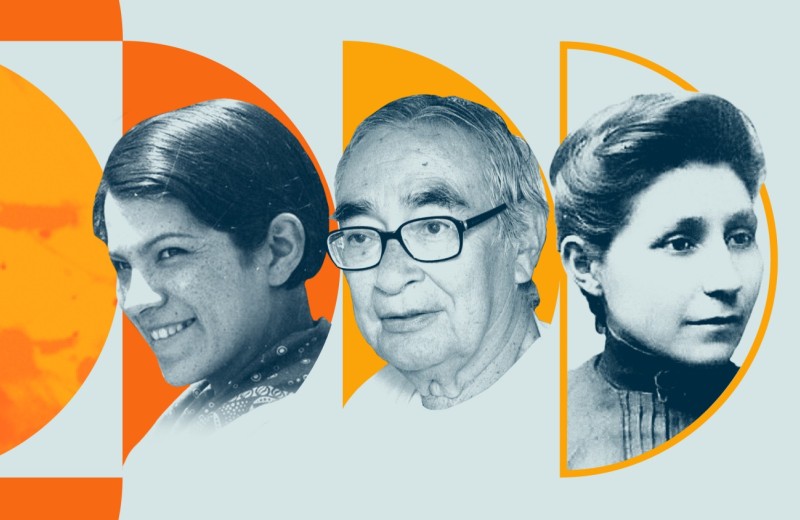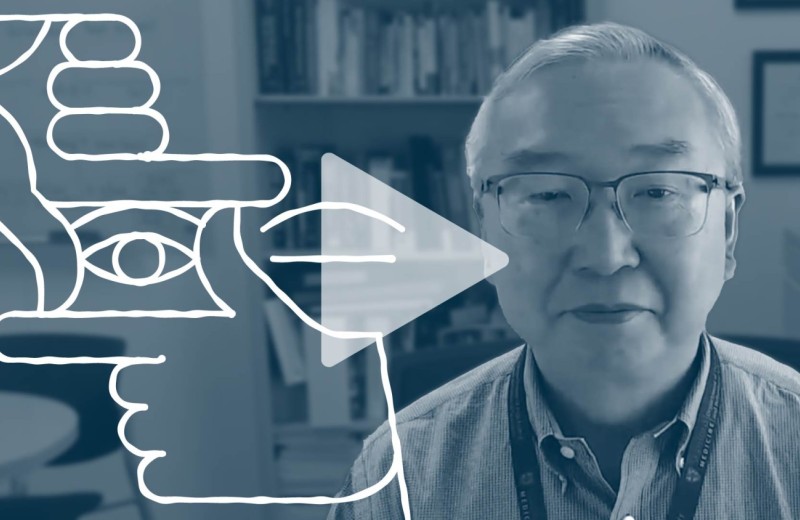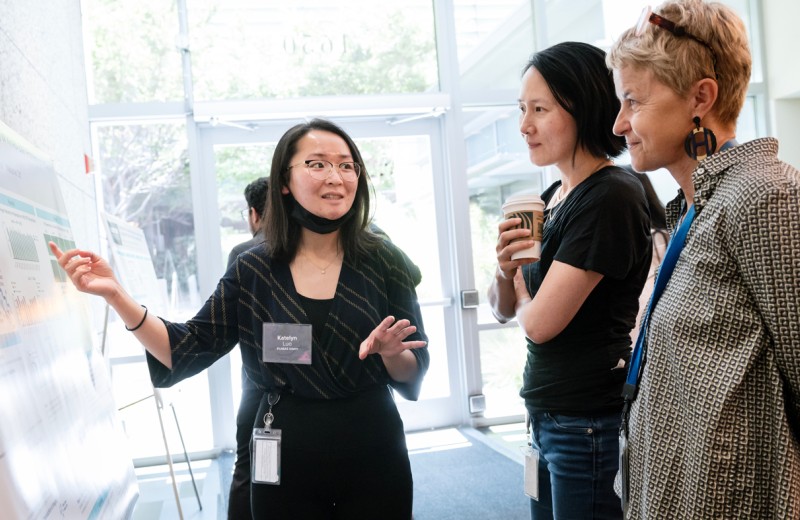Gladstone NOW: The Campaign Join Us on the Journey✕

Ada Lovelace is considered the first computer programmer.
Ada Lovelace Day is an international holiday celebrating the achievements of women in the science, technology, engineering, and math fields. In honor of the day, we asked Gladstone’s internal community to reflect on and share who are the women in science, either from history or throughout the career, that have inspired them most.
Janet Rossant, PhD
Senior Scientist, Developmental & Stem Cell Biology Program, The Hospital for Sick Children (SickKids)
Professor, Department of Molecular Genetics and the Department of Obstetrics and Gynecology, University of Toronto
“Janet is a tremendously talented and strong developmental biologist who always was a caring mentor at all levels. A true leader.”
—Benoit Bruneau, Director, Gladstone Institute of Cardiovascular Disease
Mary Claire King, PhD
American Cancer Society Professor, Department of Genome Sciences and Medical Genetics University of Washington.
“Based on cloning and sequencing a dozen genes (a big task 45 years ago), she hypothesized that differences between human and chimpanzee biology are due largely to gene regulatory changes rather than protein coding changes. I was involved in sequencing the chimpanzee genome as a postdoc, and I was able to test her hypothesis 30 years after she published it. She was right!”
—Katie Pollard, PhD, Director, Gladstone Institute of Data Science and Biotechnology
Barbara Boyan, PhD
Alice T. and William H. Goodwin, Jr. Chair in Biomedical Engineering
Dean, College of Engineering, Virginia Commonwealth University
“Barbara paved her way through the sciences during a time when there were even less women in science than there are today (and we still know we have a long way to go). Bottom line, she did not take ‘stuff’’ from anyone and she rose through the ranks over the years to become the dean of engineering at Virginia Commonwealth University.”
—Megan McDevitt, Vice President, Communications
Hedy Lamarr
Actress and Inventor (1914–2000)
“Hedy Lamarr was most well-known as an actress, featured in the movies Ziegfield Girl and Samson and Delilah, but she was also an inventor. During World War II, she patented the idea for a frequency-hopping signal that would prevent torpedoes from being set off course by an enemy.”
—Bethany Taylor, Chief of Staff
Catherine Page, PhD
Associate Professor, Inorganic Chemistry, Solid-State Chemistry & Materials Chemistry, University of Oregon
“Catherine is a professor of chemistry at University of Oregon, and was my first mentor in a research lab setting. She created an amazing opportunity for me as a sophomore undergrad that changed the direction of my college experience and career path. She was a caring mentor that led by demonstrating excellence in her work and never shied from expressing her intense intellect.”
–Alex Pico, Director, Bioinformatics Core
Helen Taussig, MD
Cardiologist (1898–1986)
“Helen Taussig pursued medicine against tremendous odds, in an era when the field explicitly denied women entrance—Harvard Medical School wouldn't accept women until nearly 20 years after Taussig graduated from Johns Hopkins. Despite this adversity, she would go on to make significant contributions in the field and earn many honors including the Presidential Medal of Freedom from Lyndon Johnson.”
—Santi Bhattarai-Kline, Research Associate, Shipman Lab
Henrietta Lacks
(1920–1951)
“Henrietta Lacks was an African American woman whose cancer cells are the source of the HeLa cell line, the first immortalized human cell line and one of the most important cell lines in medical research.”
—Zainab Sada, Administrative Assistant, Bioinformatics Core
Ami Radunskaya, PhD
Professor, Mathematics, Pomona College
“My undergraduate math professor. She had a kid, performed music, and published math papers. I was inspired to add a double major in math, which I hadn’t considered a fit for me until Ami gave me a role model I could relate to. It totally changed my career.”
—Katie Pollard, PhD, Director, Gladstone Institute of Data Science and Biotechnology
Want to Join the Team?
Our people are our most important asset. We offer a wide array of career opportunities both in our administrative offices and in our labs.
Explore CareersHighlighting Native American Scientists
Highlighting Native American Scientists
Learn more about these indigenous scientists who’ve made an impact on their fields
Communications DiversityNeurodiversity in the Workplace
Neurodiversity in the Workplace
Hear about the “Strengths-Based Model of Neurodiversity” and how it can help neurodiverse individuals be successful in finding employment and in maximizing their professional potential
Communications DiversityPUMAS Program Receives Five-Year Grant to Fuel Outreach, Diversify Science
PUMAS Program Receives Five-Year Grant to Fuel Outreach, Diversify Science
The impactful summer internship program, created at Gladstone Institutes, immerses select undergraduates in cutting-edge science
Postdoctoral and Graduate Student Education and Research Development Affairs Student Outreach and Science Education Institutional News Diversity



